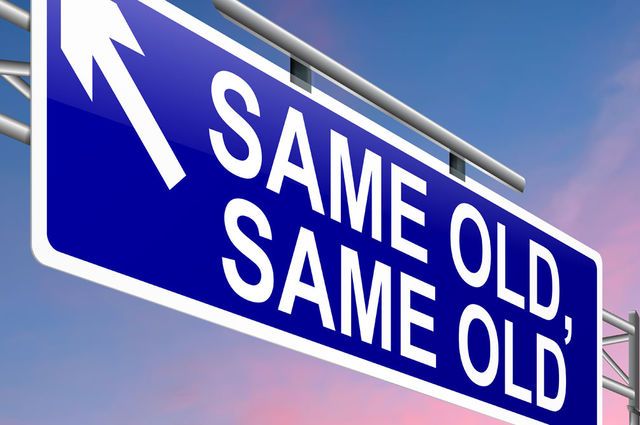Is revenue management stuck in a rut?
11 experts shared their view
Recently the question has been asked at events, in social media posts and industry articles if revenue management is stuck in a rut. The authors assert that revenue management has not really advanced in the last 10 years and revenue managers are not doing anything differently than in the past. What is your opinion of the state of revenue management in 2020?
AI Can Rescue Hospitality
Hoteliers who are unwilling to invest in the latest revenue management technologies are the ones “stuck in the rut.” Less than 5% of independent hoteliers have a revenue management system (RMS) in place, many branded hoteliers are stuck with their hotel chain's less than adequate RMS technology.
I believe the solid revenue management best practices that were valid 20, 10 or 5 years ago are still valid today. What has changed is the revenue management technologies, the channel management strategy, and the urgent need for convergence between revenue management, CRM and digital marketing.
Today's RMS technologies have advanced to a level unthinkable 10, 5 even 2 years ago and have become real-time, automated price-and-strategy recommendation engines, powered by AI and ML, supported by dozens and dozens of APIs with real-time data feeds with ORM (Online Reputation Management) customer sentiments, CRM RFM Values, Digital marketing's intent data, etc.
So it is not revenue management practices or RMS technology that are stuck in the rut, but hoteliers themselves that do not take advantage of the latest RMS technology and best practices.
Revenue Management has continued to evolve since Robert Cross first encouraged us to “do the right thing” a little more than twenty years ago. Whether it is stuck in a rut is a valid question, though. While the first decade of RM is defined by the flashy technology brought to us by experts like Cross and IDeaS' Dr. Ravi Merhotra, the last ten years have been far more subtle and much less exciting. Processes had to be created, decision making authority had to be shifted, and a new type of leader had to be groomed in order to get the Revenue Management rubber on the road.
Also, much has been made of the fact that despite the huge amount of attention given to Revenue Management, only fifteen percent of hotels worldwide have a revenue management system today, and that this statistic has been quite stable for a while. In this regard, technology is forcing its way back into the Revenue Management spotlight, as cloud computing, APIs (application protocol interfaces), and machine learning all combine to overcome the cost, connectivity, and workload concerns that have been barriers to a larger number of hotels adopting RM technology. As a result, the percentage of hotels using revenue management technology is about to increase dramatically for the first time in a long time, including many spots that are too small to have a dedicated Revenue Manager.
Finally, even if one does believe that Revenue Management has stopped evolving, it would be hard to argue that the Revenue Manager has, since the role has recently sprouted several new appendages, including channel management and digital marketing. Ten years ago, many Revenue Managers still got their start by being the front desk clerk with the best Excel skills. Clearly, things have changed a lot since then.
Is revenue management not keeping pace with today's world? How condescending to assume that a lack of reinvention every decade is a sign of incapacity. Think back to the promise that revenue management systems made: a property could see its revenue increase by a minimum of five percent by opting into an electronic revenue management system. It was an easy hurdle – going from zero to sixty was an achievable first-year challenge with a revenue management system but what happens in the second year? The answer is that the property goes from sixty to sixty-one or maybe even sixty-two. Why? Because their revenue management system is already doing all the right things: exploiting every opportunity, responding to every market change, manipulating rates a dozen times a day, and selling rooms at the right price at the right time, every time. What more were you expecting?
Yes, there could be a new formula – perhaps the sum of the square of the hypotenuse might give us another insight into demand pricing – but really, how far could it possibly move the needle? Will new guests suddenly appear in a puff of smoke?
I contend that the revenue management promise is alive, well and completely fulfilled. At the risk of declaring myself an elder statesman, I can remember a time when we updated room rates every calendar quarter instead of every quarter-hour. Is having that kind of exquisite control over our operations so passé? So five years ago? Hardly.
While having a revenue management system was a competitive advantage in the past, it's now commonplace. We are close to what the airlines are struggling with for years, they all use the same algorithms and they all end up with the same pricing. Instead of paying for an expensive system you might as well just follow what others are doing, and some hotels have taken this route already.
Fortunately, hotels are not as much a commodity as airlines and they can differ greatly by brand or experience. Revenue management systems need to start taking this into consideration and work more with CRM and sentiment data to optimize pricing for each individual customer.
Most hotels offer much more than just a bedroom. Revenue management systems should be able to yield F&B, events and any other type of ancillary revenue. This will become especially relevant when CRS systems adopt an attribute-based pricing approach.
Finally it's really not about revenue anymore. The RMS systems should start looking at profit. Two bookings at the same room rate could vary widely in profitability based on the channel or type of customer.
If the RMS systems don't adapt and hotel sales become more like regular retail, then the big retail engines may become an option for hotels as well and that would open big opportunities!
I think various factors have lead to the slow advanced of Revenue Management. Technology hasn't helped with integration issues leading to the need for manual input in may areas. This has lead to bespoke processes being put in place that are very hard to change. With data readily available across all channels now I am hoping the pressure put on the revenue teams will be solved, allowing for greater transparency on profitability across channels and also including other departments such as F&B, Leisure and Events.
It is stuck in a rut! For sure! Revenue management has been around for decades, started by companies such as IDEAS, Rainmaker and EZRMS. In a research report from Skift published in April 2019, by Wouter Geerts, statistics show that only 16.9% of the hotels globally use revenue management technologies. The question is why? Is the quality of today's RMS systems really good, do they actually increase revenue for hotels? Can RMS systems show the advantage and revenue gain to potential customers? Is an RMS system really needed? A hotel may have many rate/room combinations but usually had has only a few rooms, between 50 and 200.
Hard questions to answer. In my opinion, it comes down to being able to prove to hotels that RMS and sophisticated AI can actually make much better pricing decisions than a human being can, especially in high demand regions and cities. In more rural areas, pricing algorithms will find it harder to determine the best pricing. Looking at today's available systems I do not see enough focus on the probability of success, the methods they use are doubtful at best, and not convincing enough for the hotels to switch, at least in my opinion. They all do the same thing, none of them is unique and showing a clear path to the future. IDEAS initially showed a lot of progress but now appears to be at a plateau as well.
Stuck in a Rut, for sure!
We believe that this is “The Golden Age” of Revenue Management, with revenue leaders having access to analytics, automation and revenue science at never before seen levels of sophistication. Just in the last few years we have seen the development of new pricing methodologies which are removing the constraints between rate and room products. We have seen the incorporation of ever more granular data points, including reputation, market demand and competitor rates. And finally, we have seen the infusion of revenue science into new areas, including meeting and events.
Total revenue management is now being introduced and adopted at more and more hotel companies and in the very near future we will see the expansion of revenue management, giving both Hotel Operational leaders and Corporate Commercial leaders unparalleled access to sophisticated revenue science and real time, automated decision making power. Far from being stuck in a rut, it has never been more exciting to be a revenue leader.
The desire to innovate, increase collaboration across departments, and create new revenue streams that maximize profits beyond just traditional room rates has always existed. However, the volume of data to manage and track additional attributes has increased exponentially, and with it, the need to process it even faster to present the right products to the right customer across all distribution points. Although technologies such as AI are becoming more available for the task, the struggle facing hoteliers is that revenue management processes and talent are lagging behind. They need to seriously invest in recruitment, training, and retention of key talent in this area, helping to focus on the big picture vs. just tactical execution.
To address this need, we are seeing professors around the world – at the most renowned universities for revenue management – pivot from teaching traditional revenue management disciplines of manual data analysis and decision making to teaching students how to become “revenue strategists.” Rather than concentrating solely on data entry and calculations, a revenue strategist's job will be to evaluate the overall, revenue-optimization opportunities as an interdisciplinary role.
It is interesting to see that the evolution of RM, its tools, discipline, and focus has not evolved in the same way globally. Where in certain areas the USA is the early adopter, in others it is actually APAC or EMEA. I do agree, as indeed the RM community is still very much focused on guest rooms and even more so transient non-contracted business. Everyone talks about big data, total revenue management, or profit management, but not a lot has been done over the years. I disagree, as there is movement: the discipline of RM has changed and is changing to a more strategic role. More tools are available (granted it is daunting to see the forest from the trees) to help hoteliers automate decisions. At RM conferences there is much more talk about integrated approach, combined with marketing and sales, rather than to operate in isolation from each other.
This is a hard question to answer while not “stereotyping” what we have been doing in the past decade. To give credit where it's due there have been a number of more innovative boutique and luxury hotels out there who have dabbled in trying to increase total revenue/profit not just room ADR. That being said the majority of hotels still treat revenue management the same as they did 10 years ago.
When I was overseeing revenue management in the late 2000's we were embracing new technologies that would help set the price of rooms based on historical performance & current pace. Fast forward 10 years and that technology has become more mainstream but still essentially the same premise. The focus is on ADR vs budget.
Today we have a handful of players looking at alternative ways to measure competitive set performance based on things such as shopping behavior and comp set inventories. This is a good step in the right direction. Hoteliers should be considering shopping demand more often and really look at what is happening in their own neighborhood to determine what the opportunity is.
A hotel's optimal mix needs to take into consideration what the addressable market is and what revenue streams are available to the hotel. The airlines are very good about ancillary fees and have successfully used them to increase their profits. While some hotels try to boost room category upsells - most fail. It's clear to a traveler what the experience on a flight will be if they move from a middle seat to an aisle. Yet it's unclear to a consumer what the benefit is to move from a deluxe room to a superior room. Why not add things to enrich the guest experience? This should be addressed and fixed.
As RMS platforms start to take into consideration additional revenue streams and shopping behavior it will be important for hoteliers to holistically evaluate their total revenue vs. profit potential. Hoteliers need to use the data they have to look at how to drive total contribution and move towards an optimal mix. In the end this will eventually net a higher profit and a bigger win in then just the RevPAR index game.
“Nothing that is good can become stuck – and if it is stuck, it can't be any good!”― Silvia Hartmann... My observation over the last 25 years of revenue management is constant progress in many aspects of the discipline. That includes education, job roles, influence, scale, visibility, technology capability, technology providers and professional community. When combined with the aspects of distribution that the discipline often encompasses we've moved from a world of limited third party distribution in an offline environment to exponential internal and external distribution on a real time basis. In that time it's almost the case that the entire industry has changed the manner in which product is offered and sold in a digital world.
However, that applies only to room inventory with few exceptions. If I had to classify a 'rut' for revenue management it would be on this premise. By this stage I had envisioned that the discipline and tools would have moved beyond a predominantly room only focus.
Dialogue is emerging on revenue management broadening horizons beyond the room product, although there is limited technical application toward this becoming a reality. Being able to look across a businesses portfolio of products in a meaningful way has also not greatly progressed from an operational or technical capability.
That means there is opportunity. In my view plenty of it. If industry begins to experience a consolidation of operational systems across the hospitality business then the capability will follow to apply revenue management across the business for individual or collective products offered to the guest.
Perhaps the other 'rut' is the level of adoption of technology. Hospitality has a long gestation period for any new technology. Although the path of revenue management technology toward scaled adoption has doubled my normal expectations when compared to other new to market capability.
It's been suggested less than 20% of industry has deployed revenue management technology. Fascinating when considering that room sales process leads the industry in terms of sophistication. What the magic bullet is that industry is awaiting before large scale adoption, I do not know.
Although when speaking on the topic with a fellow industry colleague recently, he highlighted that in hospitality the operator is generally on the search for the feature or capability that does not exist vs. appreciating the opportunity for new capability that can come into a business.
A reasonable approach to replace well worn tech. Not appropriate when considering adopting new technical capability.
The early bird always catches the worm.











